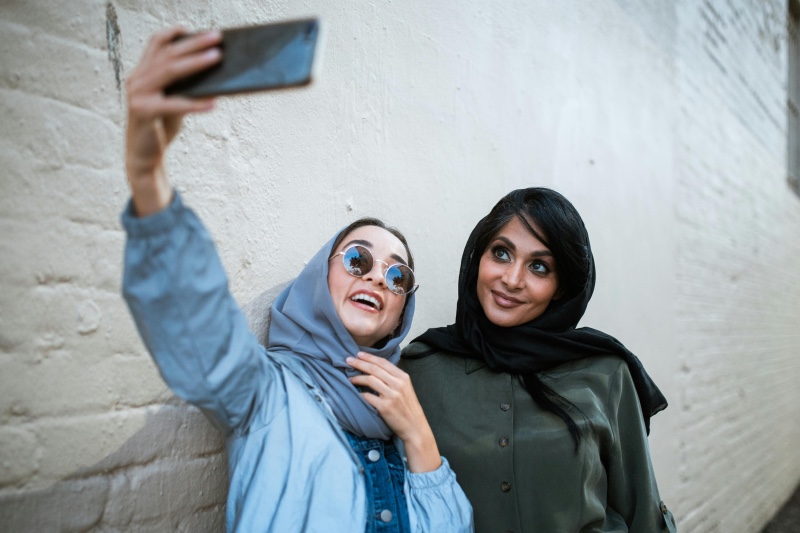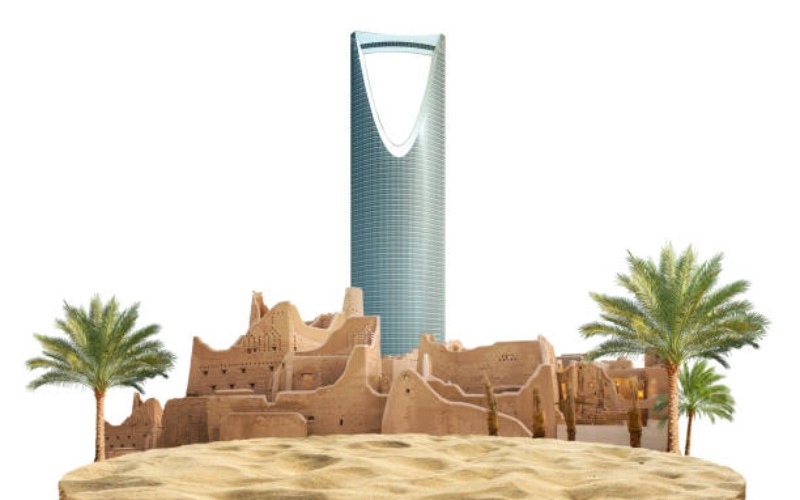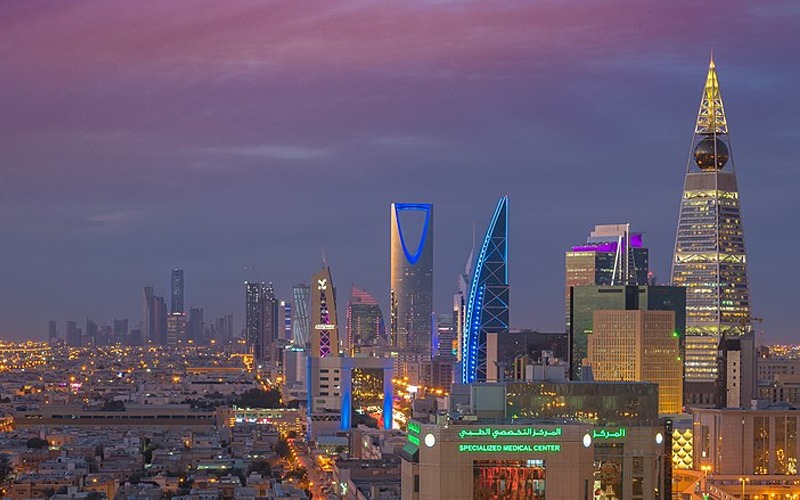Are you on a trip to Saudi Arabia? Just like food, language can make or break your experience. Saudi Arabia is a It is a wise decision to learn some basic Arabic phrases before traveling to Saudi Arabia.
Most Important Arabic Phrases for Saying Hello or Goodbye
- As-salamu alaykum (ٱلسَّلَامُ عَلَيْكُمْ): This is the most common greeting, meaning “Peace be upon you.”
- Wa alaykum as-salam (وعليكم السلام): Respond to the above saying with this phrase which translates to “And upon you peace.”
- Marhaba (مرحبا): A simple “Hello” or “Welcome” that’s perfect for most situations. These are regarded as ideal greetings for everyday use.
Basic Arabic Phrases to Use in a Conversation
- Kayf haluk/haluk (كيف حالك/حالِك؟): This is a way to inquire about someone’s well-being. Haluk is used when addressing a man, while Halik is for a woman. The response, Bi-khair (بِخَيْر), simply means “Fine” or “Good.”
- Yمين (Yameen): This means “right” and is helpful when navigating or asking for directions.
- يسار (Yasar): This means “left” and is the opposite of Yameen.
- La (لا): This is a simple “no.”
- Shukran(شكرا) Thank You
- Na’am (نعم): This is a simple “yes.”
- Mish masalah (مِشْ مَشْكَلَة): This is a casual way to say “No problem” or “You’re welcome.”
- Inshallah (إن شاء الله): This is a common phrase expressing hope about the future. It literally translates to “God willing” and shows that things will happen according to God’s plan.
- Yallah (يلا): This is a friendly and energetic way to say “Let’s go!” It can be used to urge someone on or suggest moving to the next thing.
- Ma ismuk (ما اسمك؟): This is a casual way to ask someone’s name. It literally translates to “What is your name?” You can respond with Ismii (meaning “My name is”) followed by your name.
- La afham (لا أفهم): This is a helpful phrase if you’re stuck and don’t understand something. It simply means “I don’t understand.”
- Hal tathaddath al-Ingliziyya (هل تتحدث الإنجليزية): This is a polite way to ask if someone speaks English. It literally translates to “Do you speak English?”
Essential Shopping Phrases in Arabic:
- Kam al- سعر (كم السعر): How much is this?
- Bikhm hadha (بكم هذا؟): This phrase also works for asking the price of something.
- Ghali (غالي): Expensive (use this if you want to haggle!).
- Law samaht (لو سمحت): Excuse me (use this before asking a question).
Directions and Getting Help:
- Ayn (أين): Where is…? (followed by the place you’re looking for, like Ayn al-masjid (أين المسجد) for “Where is the mosque?”)
- Ishtarat (إِضْطَرَرْتُ): I am lost.
- Astadir (أسْتَدِيرُ): Can you help me?
- mosaAda: Help!
- ayna: Where?
- yimeen: Right
- yesaar: Left
- al’a tuul: Straight on
Expressing Gratitude:
- Jazakallah khairan (جَزاكَ اللهُ خَيْرًا): Thank you very much (male)
- Jazakallahu khairan (جَزاكَ اللهُ خَيْرًا): Thank you very much (gender-neutral)
- Jazakich khairan (جَزاكِ اللهُ خَيْرًا): Thank you very much (female)
Bargaining:
- Yunkhal (يُنْخَفَضُ): Can you lower the price?
- Qadr al-akheer (قَدْرُ الآخر): What is your final price?
General Arabic Phrases:
- Tafaddal/Tafaddali: Please come in (male/female)
- Safi: Okay/Alright
- Al-aan: Now
- Yastarfikum: Excuse me (used when interrupting or needing to pass through a crowd)
- Lazeeza: Delicious
- Najma: Stars
- Jameela: Beautiful
- Ma’an: Water
- Hel enta sayim: Are you fasting?
- Ana sayim: I am fasting
- Ayna aqrab maHatet banzeen: Where is the nearest garage/petrol station
- Hal Ladika hatef: Do you have a phone?
Conclusion
By understanding the meaning behind these phrases, you’ll be able to use them more confidently and effectively during your travels in Saudi Arabia. Remember, locals appreciate even basic attempts to speak Arabic, opening doors to a more enriching cultural experience.
Also learn about some of the common questions a Saudi Arabian tourist asks.

A travel influencer, adventurer and blogger on a mision to dicover the hidden gems of this beautiful planet. For me traveling isn’t a hobby, but a way of living.



